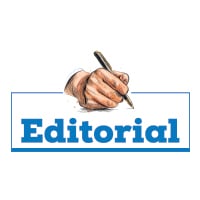
The time to act
In Pakistan, political temperature continues to remain pegged at the boiling point against the backdrop of an ever-growing economic crisis. So far, the main political players have been unable to find any middle ground or to chalk out a roadmap which can take the country towards political stability.
Former premier Imran Khan appears committed to dissolve the Punjab and Khyber-Pakhtunkhwa assemblies and walk out of the remaining two – of Sindh and Balochistan – to at least get a vote on 66 percent of the constituencies if not in the entire country.
Apparently, the government rigidly sticks to its stance about completing the five-year term of the current assemblies. If the two sides fail to reach some sort of an understanding directly or with the help of institutions, and Imran Khan is forced to go ahead with his plan of quitting the provincial assemblies, Pakistan will plunge deeper into a political crisis. This situation must be avoided.
But instead of finding a solution, the Shehbaz Sharif government is raising the political heat by coming up with flimsy charges against the former premier, including playing up the so-called Toshakhana case.
Media allied with the government, ignoring all the other pressing issues faced by the country, is also just sensationalising the non-issues aimed at undermining the opposition Pakistan Tehreek-e-Insaf. By all means this is a dangerous situation.
While politicians are busy fighting one another, the most crucial questions – such as does the Shehbaz Sharif government have any strategy which may help the country get out of its economic predicament – remain unanswered.
Another crucial question is whether the finance minister is pursuing any reform agenda with a mid- to long-term outlook, apart from looking for more loans to pay the old ones or begging international players to help rollover the debt.
And even if general elections are held – let’s say tomorrow – does the PTI have any tangible strategy to revive the country’s economy on sustainable grounds?
And let alone the PTI, do any of the major political parties have solid teams comprising economists and sector specialists who can spearhead the change to make Pakistan a viable state?
Another important question is whether our ruling elite really desires reforms or wants a status quo which safeguards their narrow interests. Do our institutions, including the Pakistan Army, realise that it is an emergency-like situation and a radical change is a must in the way we run and govern Pakistan?
Pakistan politics and the successive governments have long been stuck in the “old boys club” or “the rich boys club.” That’s the reason why every government – be it civil or military – bank on the same few dozen faces for consultations, ideas and even running the economy – people, who have been tried, tested and always found wanting whenever given a chance to lead.
The revolving doors at the entrance of our corridors of power keep on bringing and ousting the same old individuals, who have no fresh ideas or even commitment and stakes in Pakistan to become an instrument of change.
This is a sad state of affairs. A country of more than 220 million people is unable to infuse fresh blood in decision-making. Instead what the nation is being offered is the younger generation of the same dynastic families in every sphere of power structure.
This is an unsustainable and wrecking Pakistan.
The educated, the middle class, the lower middle class and professional, hardworking Pakistan grows disillusioned with this elite capture. This new Pakistan is not prepared to accept the same old under the new wrappings. The 20th century Pakistan must give way to the 21st century Pakistan.
Institutions in their own enlightened self-interest, while helping in defusing the current political polarization, must focus on bringing in the radical reforms in the country to make it not just economically viable, but transform it into a strong, stable and prosperous state.
A state governed under the rule of law and free from the yoke of dynastic hegemonies in every sphere of life. The old, crumbling Pakistan must give way to the young and dynamic Pakistan. This is the only way forward in the 21st century. People have expectations from their institutions, which must act before it is too late.









